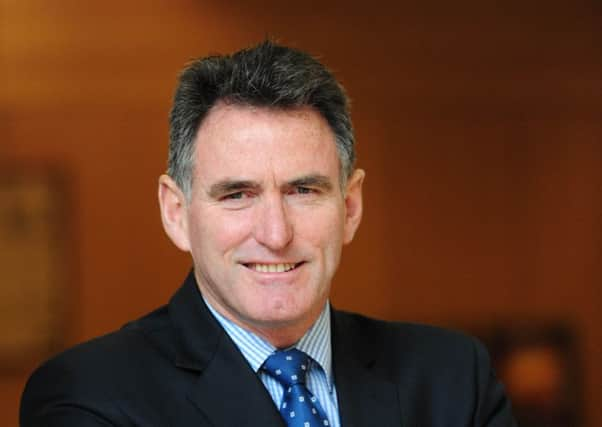RBS warns of further hits as losses soar to £2bn


It came after Bank governor Mark Carney had said lenders had “no excuse” not to pass on the rate cut to households as the central bank made its biggest downgrade to UK economic growth forecasts for two decades amid uncertainty following the Brexit vote.
Ross McEwan, RBS’s chief executive, said the standard variable rate for mortgages at the parent and its NatWest subsidiary will be reduced by 0.25 per cent to 3.75 per cent from 4 per cent.
Advertisement
Hide AdAdvertisement
Hide Ad• READ MORE: RBS chief warns bank staff over Brexit ‘unknowns’
McEwan said: “We’re passing on the base rate cut in full to our valued mortgage customers on our standard variable rate. We have been the fastest-growing large UK bank with net lending growth of over £20 billion in the first half of the year – higher than any other bank.”
Other banks to follow suit by passing on the rate cut in full included HSBC, Lloyds, Barclays, Santander and Nationwide.
It came as RBS revealed yesterday that its losses rocketed to £2.04B in the first six months of this year,hit by another raft of misconduct and restructuring charges.
The bank’s latest huge loss compares with £179 million of red ink in the same period of 2015, with Mr McEwan admitting the resumption of dividends at the group was “likely to be 2018 at the earliest”.
RBS was stung by £630m in restructuring costs in the first half and a similar provision for litigation brought by shareholders linked to its £12bn rights issue and £45bn taxpayer bailout in the financial crash. There was also an additional £450m provision for payment protection insurance (PPI) claims.
McEwan said the group was making “good progress” after passing the midway point of its latest five-year turnaround plan, and revealed that he had cut the costbase by £2bn since taking the top job in 2013.
Advertisement
Hide AdAdvertisement
Hide AdThat has included major asset divestments including its Citizens US retail banking franchise, the Direct Line insurance business and Worldpay, the payment processing business, as well as slashing back its investment banking arm.
Against the backcloth of the deteriorating UK economy, RBS chairman Sir Howard Davies said: “We sold off a lot of assets over the past two years that it would be difficult to sell off at current prices.”
The bank also revealed yesterday that it has pulled the planned flotation of 300-plus branches that will specialise in small business lending under the old Williams & Glyn (W&G) brand.
Instead it is talking to several parties about a possible trade sale of the business, with Spanish-owned Santander UK understood to have returned as one of the parties interested in acquiring W&G after an abortive takeover attempt in 2012.
RBS’s total after-tax losses have reached £53bn since its state rescue. Asked if the taxpayer would ever get its money back from the bailout, Mr McEwan said: “The market would have to move dramatically to get that back.”